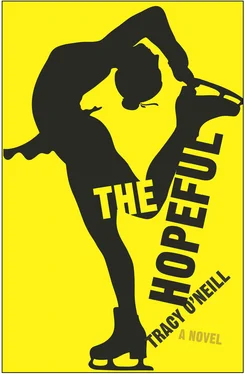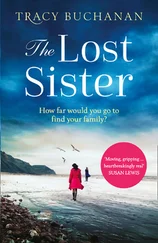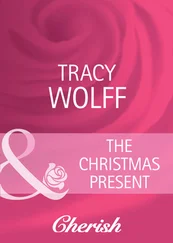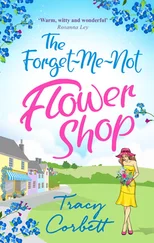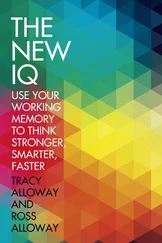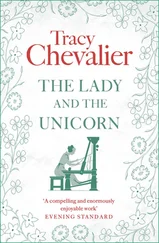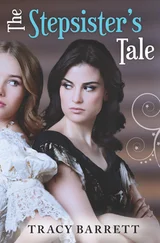“What about your father?” He upended a pencil between his fingers continuously, so that the point flew from left to right.
“I told him that I’m going to Columbia for a college visit, and that I wanted to go alone.” It was the first time I’d ever denied my father a parcel of my dreams, and he’d seemed to shrink before my eyes when I told him it was time I took a trip alone. He consoled himself by saying he was rooting for Harvard anyway.
“I meant your biological father,” Mark said. Somehow, I’d not thought of the biological father, and now, even as I did, he still didn’t seem real. The closest I could imagine was the male restroom symbology. I still felt I had a father in Alvin Doyle.
To go to Harvard, I got to play hooky with my father. “This is a day to malinger!” he said, hanging up the phone from a call to my school. He repeated the vocabulary when making a call for truancy from work. My mother too was pretending to be sick, crying chills from beneath a blanket covering her head. She had been doing this since I’d coerced her for money. That once anxious woman had devolved into a horizontal plank of quaking fear, the symptoms of her malaise mirroring those of the wrought body.
“Maybe you’ve got mono,” I said. “You know, the kissing disease?”
“I’m not tired,” came the comforter-muffling of my mother’s voice.
“Hydration, hydration, hydration!” my father declared.
“Or AIDS,” I said. “That carries flu-like symptoms.”
“Ali, sometimes your sense of humor—” began my father.
“I’m just trying to get down to the truth. The scientific, medical, physical truth. What is the physical truth, Mom?”
“Harvard! Long drive!” she shrieked.
“You’re right,” my father said. “We have an impression to make.”
In the car, we cranked the radio to nostalgia and heartache, to a long distance dedication from Irene in Milwaukee.
Dear Casey , she wrote. Three years ago, I had six months to live.
“Is my math wrong or is there hope?” my father asked.
“‘You give 100 percent in the first half of the game, and if that isn’t enough in the second half you give what’s left,’” I quoted.
When I was diagnosed with end-stage renal disease, my chances of survival were slim.
“Well they don’t call it beginning-stage renal flourishing,” my father said.
“Also known as birth,” I said.
I was placed in a lottery for an organ donor.
“Ten dollars the donor’s a goner.” I said.
“This one’s too easy,” said my father.
In the eleventh hour, a priest named Father Patrick came to visit me and urged me to use the power of prayer. If you’re scientific, he told me, you can think of it as mind over matter. Just try it.
“Oh curveball: divine intervention,” I said.
“Long distance dedication to God: long or long long?”
“Depends if you’re Marxist,” I said.
As fortune would have it, Father Patrick entered cardiac arrest. As he clutched his chest, he told the medics that this was a sign from above and that he’d like to donate his kidney to me.
“She killed the poor bastard!” my father said.
“Hail Mary!” I added.
“What’s it going to be? ‘God Bless America’ or ‘Ave Maria?’”
“‘Return to Sender,’” I said.
The song, unbelievably, was “Luck Be a Lady Tonight.” We marveled at how context could make Sinatra so tasteless. My father whistled along just the same, while I filled in the gaps with syncopated Tonights! He reached over and squeezed my shoulder, grinning.
“Isn’t this like déjà vu all over again?” he said. “Just like the skating days.”
“In the sense that a metaphor is just something that it isn’t,” I replied. Suddenly, I was edgy with amphetamines.
“Actually, that’s very astute, Ali. Do you know of Lacan’s ‘Instance of the Letter’? He believed desire was itself a language, which means that it was a series of significations standing in for significations endlessly. He believed we replace desires with desires because we know we can never attain our deepest desire! He was a scientist whose ideas were predicated on work in the humanities!”
“You’re speeding,” I said.
We sat in an auditorium curtained in velvet the color of dirty feminine napkins, and I lost count of the number of teenagers already wearing Harvard sweatshirts. Most of them wouldn’t be admitted, but they’d wear those sweatshirts until the form letter arrived. Some of them had brought notebooks, or else their parents had. My father was one of those.
The people who addressed us, the so-and-so’s from such-and-such department of the very distinguished school of that particular specialty, spoke in a way meant to stop the old Boston joke: Two men collide in a Boston bar. “Ouch, where are you from?” says the guy from Suffolk University. “I’m from somewhere where we don’t end sentences in prepositions,” says the Harvard man. “I’m sorry,” says the Suffolk student. “Where are you from, asshole?”
The first speaker hoped we’d all helped ourselves, to the catered cookies on the table in the back. The second speaker wanted us to know that it wouldn’t be financial destitution that would keep any young person from the legacy of excellence that was Harvard. For that, I supposed there was destitution of intellect. The third speaker told us there was something for everyone at the university. French club. Film club. French film club. I was twitchy, and the room felt stuffed with heat and empty of action. Time, it seemed, was moving in the ancient Egyptian sense, the Egyptians who called a week a decade. It was announced that the session would end with the keynote speaker, Walt Whitman Professor of English, Dr. Edwin Connolly.
“Why study liberal arts?” he began. “Because a wise man said the liberal arts are the best way to confront the world thoughtfully, and I am that wise man.” The sweatshirt kids laughed, and some of the sweatshirt parents clapped. “In reality,” he continued, “a liberal arts degree will not teach you how to be an accountant. It will not teach you how to be a journalist. And it will not teach you how to be a veterinarian. Yet many liberal arts students do go on to excel in these fields. A few months ago, my grandson looked at me and asked me, ‘Pop Pop, what do you do?’
‘I’m a thinker,’ I told him.
‘That pays?’ he asked.
I told him, ‘Yes, it certainly pays.’
Here at Harvard, we strongly believe that a liberal arts education does in fact pay. Unlike professional schools, we do not limit the area of enquiry to the vocation, vocation coming from the Latin vocare , ‘to call.’”
“Hear that, Ali?” my father whispered. “Latin! Alis volat propiis : she flies with her own wings.”
Connolly continued speaking. He looked as though he was made out of soft French cheese. “We do not limit education to learning how to do, but rather extend our mission to how to doubt. Our mission is to teach independent thinking, and independent thinking is not just learning facts. Independent thinking is also learning doubt.”
“Hear that?” I whispered to my father. “A dubious endeavor!”
“My dragonfly,” he said, and squeezed my hand.
Connolly had begun elaborating on why the hallmark of the liberal arts education was discussion. “Through the dissonance of their varied opinions and the diversity of their disciplines— Latin, economics, English, politics — students reach new heights of understanding impossible in the isolation of specialization and selfhood. Their success as individuals is made possible through the discursive work of the group.”
Читать дальше
